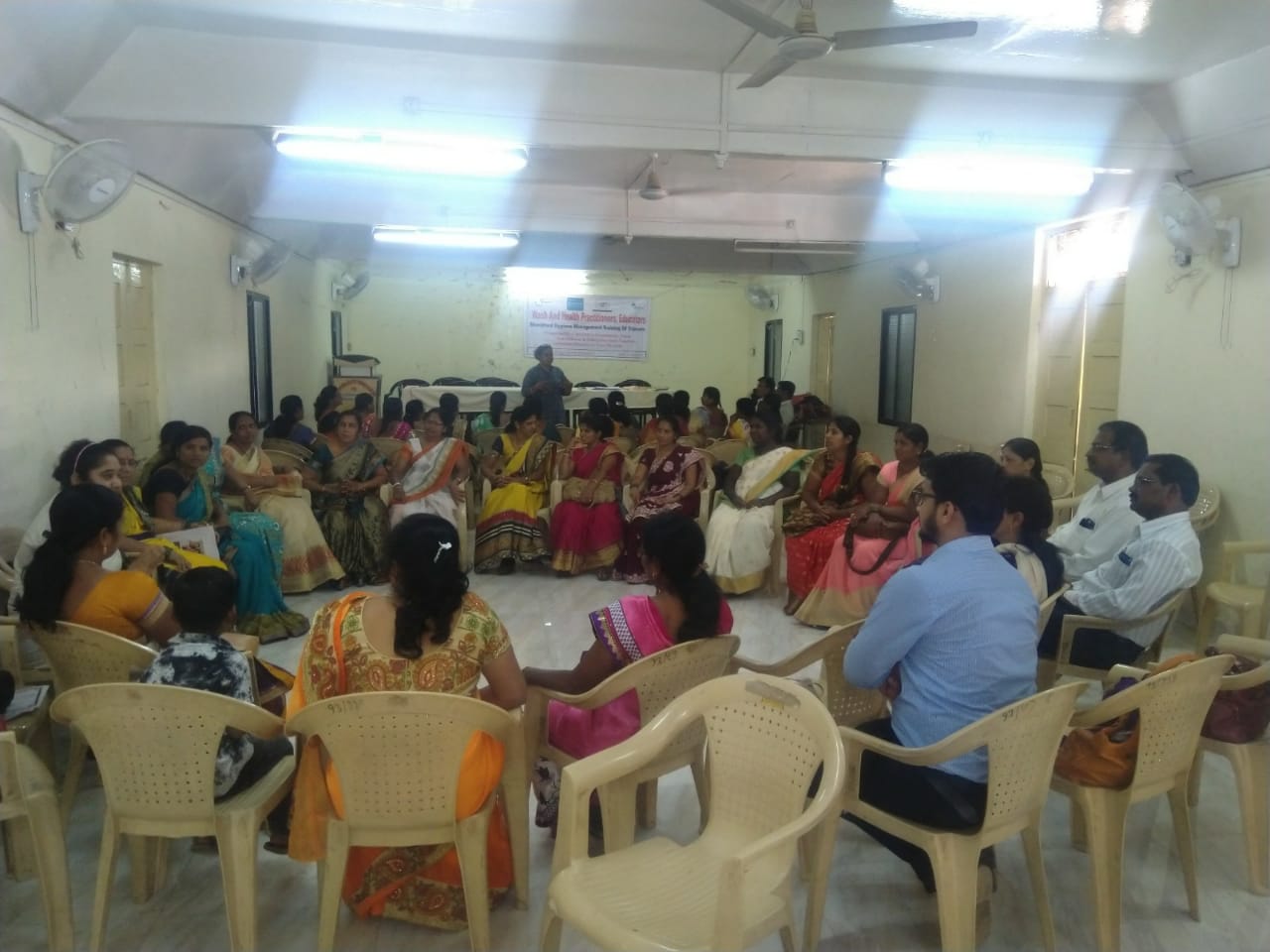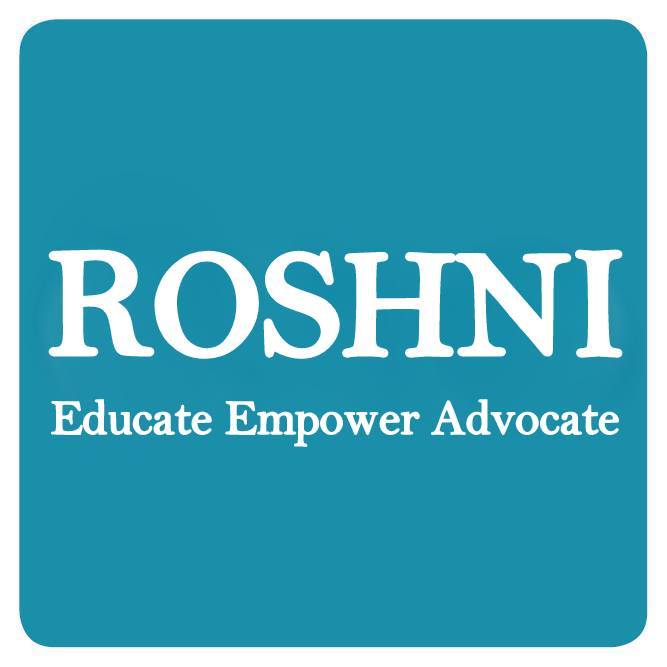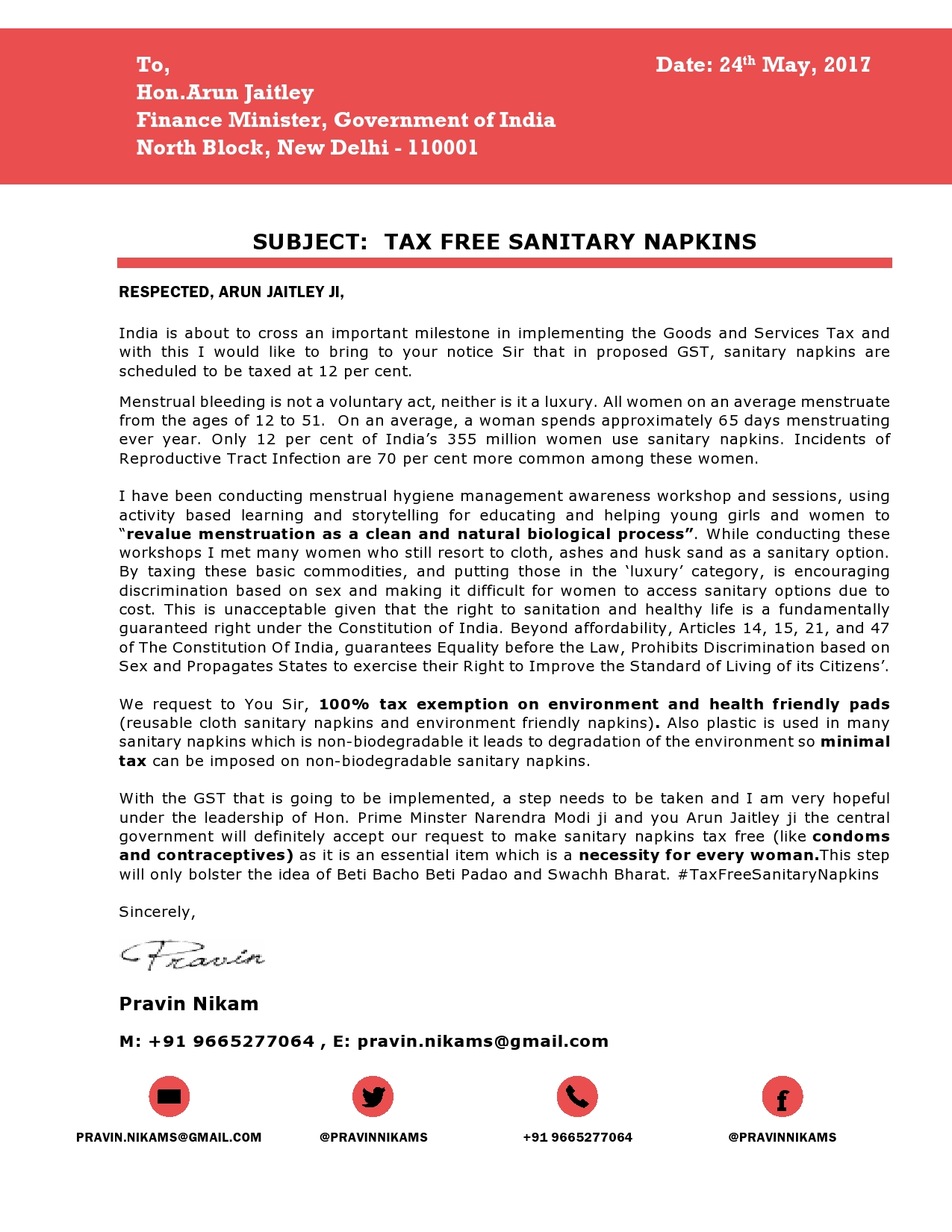- Home
- About us
- Focus Areas
- Menstrual Hygiene and WASH
- Gender, Sexuality, Law, LGBTQIA+ and Reproductive Rights
- Human Rights, Peacebuilding, Sustainability and Behavioural Change Approach
- Youth Volunteerism and Indian Constitution
- Enabling the Differently Abled
- Legal Aid, Capacity Building / Training , Policy and Research Advocacy
- Crisis Relief Intervention
- ROSHNI and Sustainable Development Goals (SDGs)
- Campaigns
- Blog
- Media
- Volunteer with Us
- Contact Us
Our Approach: Enabling Women, Youth and Educators as peace builders by integrating peacebuilding approach in the above mentioned MHM, Sanitation, Gender Equality in the Training of the Trainer (ToT) / capacity building Workshops.
Gender and peace are closely linked. And peace is vital to promote gender equality. When accompanied by strong empowerment structures only then gender mainstreaming can be effective – where women have greater voices in the public sphere, and resources are allocated to human development priorities. By including women in prevention and response strategies, they can play an active role towards sustainable peace.
Our capacity building workshop for educators, women and young people on MHM, Sanitation, and Gender Equality are also designed to support women, young people and educators in gaining skills that can enhance their positive role in issues of peace in local communities, preventing violence against women and children and promotion of diversity in local communities and villages.
Apart from MHM, WASH and Gender Equality ToT training, we will also equip them with the tools to address stereotypes, prejudice and polarization in order to build more inclusive and peaceful societies in their communities, this includes
- Information about different cultures, faiths within and beyond the group to foster intercultural cohesion and collaboration;
- Stereotypes and how to critically analyse them to reduce their prevalence;
- Engage in the creation of peace at every level of society
- Break the chains of hate and revenge
- Build networks of forgiveness and friendship across racial, religious and social divides
- Develop competences to use different forms of media or expressive arts as a way to reduce polarization and promote social inclusion.

Integrating peacebuilding approach with MHM and WASH during ToT session with Zilla Parishad Teachers
Can MHM, WASH initiative help in achieving peacebuilding in local communities?
Yes we at ROSHNI Foundation strongly believe that MHM, WASH initiative will help to achieve peace in local communities by adopting an approach of integrating peacebuilding, MHM, WASH and gender equality. Here our focus is peacebuilding in local communities among people who belong to different religion, caste, gender, region etc.
Ownership Approach: We believe that ownership in order to achieve impact and so we focus on how things could be done differently.
Challenges: There do exist some challenges as scientific evidence to prove contribution of MHM, WASH in peace is still limited and more research on this topic is needed
Skills required to deliver possible outcomes: Social auditing and integration within different sectors will be required to done to achieve impact and make sure we all stakeholders foster peace.
How can this impact be achieved: Humanitarian work and development can go hand in hand, a small suggestion that can help to achieve it, can be in which we stakeholders consider following points:
- Stakeholders need to see for long term picture when it comes to the impact of MHM and WASH on peace in order to achieve SDGs
- The contribution made by MHM and WASH initiatives to the socio-political discourse, should not be ignored.
- Evidence based research is required to relate MHM, WASH and peace, in order to see its impact on local communities.
- Civil Society Organisations, Government need to change their approach when it comes to integrating peacebuilding and MHM, WASH, gender equality.
ISSUE: Woman on an average spends a decade of her life menstruating. Women experience pain and lack energy during their periods. Due to cultural beliefs surrounding sexual reproductive health and blood, they face limitations in managing their menstruation as well as their participation in daily live.
Lack of awareness is a major problem in India’s MHM scenario. Indian Council for Medical Research’s 2011-12 report stated that only 38 per cent menstruating girls in India spoke to their mothers about menstruation. Many parents do feel the challenge on how to explain it to their child. Schools also did not have necessary sanitary infrastructure and did not discuss menstrual hygiene with their students.
Lack of information of how to maintain proper hygiene often leads to infections. Since women in India often don’t have access to affordable, good quality sanitary napkins or proper WASH facilities, it is almost impossible to manage their menstruation in a healthy way. And this impacts their personal development, economic status and health. Also in India, 23 million girls drop out of school early when they start menstruating and many of them end up facing acute health problems. The number of menstruating women in India is 355 million, which accounts for nearly 30 per cent of the entire country’s population.
WHY DOES IT MATTER? As per UNESCO which we quote them hereby says “MHM also involves access to health services, positive social norms regarding menstruation and effective advocacy and policies. MHM is vitally important as the challenges these women and girls face during menstruation prevent them from realising their human rights, turning a biological fact that almost all women experience, into a barrier to gender equality.
According to Article 25 of the Universal Declaration of Human Rights, every individual has “a right to a standard of living adequate for the health and well-being” of themselves. When you are told that one of the basic biological processes that you experience and cannot control is shameful, it has the potential to lower the value that you see in yourself. Combined with the common lack in understanding of menstruation, this can lead to significant amounts of fear and confusion and have a considerable negative impact on mental health. Article 26 dictates that everyone has a right to education. Without access to clean menstrual management products or places to change and dispose of used ones, many girls around the world miss school during menstruation to try to keep it hidden. Some girls do not even have the option to go to school during that time. This creates a disparity between the educational and career opportunities of men and women, violating Article 2 of the declaration, which says that everyone is entitled to their rights without discrimination based on distinctions like one’s sex. It is unacceptable to allow limitations to be placed on individuals’ access to their human rights based on something that is uncontrollable. In order for things to change, individuals must take action.
Menstrual hygiene rights are human rights, as the universal declaration of human rights states in its preamble that all human beings should be recognised for their inherent dignity. Without good menstrual hygiene management practices this is impossible for girls. Menstrual hygiene rights are connected to the right to non-discrimination, to health and healthy environment, education and work. The right to health is also at risk, as women using unclean cloths without the ability to wash are at greater risk of developing infections.
Effective Menstrual Hygiene Management is also essential to achieve a number of the Sustainable Development Goals including ensuring healthy lives, inclusive and equitable education, gender equality, clean water and sanitation and inclusive economic growth. Additionally, Menstrual Hygiene Management helps to keep the environment clean through avoiding waste and saving water.”
We at ROSHNI Foundation advocated for Tax Free Sanitary Pads Movement on 16 Nov 2016 when our founder spoke about ending Sanitary Pads Tax at Global Citizen Festival in Mumbai, in the same speech he demanded 100% tax exemption for environment and health friendly pads (reusable cloth sanitary napkins and environment friendly napkins). Due to the efforts of all gender activist, citizens and civil society organisation across the country the government scrapped a controversial tax on sanitary pads in July 2018.
As a part of Sustainable menstruation we promote use of environment-friendly alternatives to menstrual products, which contain no plastic and chemicals. Sanitary waste is one of the major concerns and challenges faced by environment as the plastic component in sanitary pads takes around 500-800 years to decompose.
Impact on Environment:
- Sanitary waste disposal has emerged as a major threat due to the plastic used in disposable sanitary napkins are not bio-degradable and lead to health and environmental hazards. In addition firstly the unorganized ways of municipal solid waste management and secondly poor community collection, disposal and transportation networks in the cities and villages led to more problems. Another major challenge when it comes to of sanitary waste is their categorization, i.e., whether it is biomedical or plastic waste.
- “Tampons, Condoms, Soiled napkins, diapers and blood-soaked cotton, which are household waste” according to the Solid Waste Management (SWM) Rules, 2016, are being disposed after segregation into biodegradable and non-biodegradable components. The Biomedical Waste Management Rules, 2016 state that quote “Items contaminated with blood and body fluids, including cotton, dressings, soiled plaster casts, lines and bedding, are bio-medical waste and should be incinerated, autoclaved or microwaved to destroy pathogens. “
- The lack of concern for sanitary waste management in our country is reflected in the fact that there is no reliable statistics on the subject.” With reference to a study which was titled ‘Sanitary Protection: Every woman’s health right’ conducted in 2011, it estimated that only 12% of the 335 million menstruating women have access to disposable sanitary napkins. A environment portal named as “Down to Earth” has estimated that 432 million pads are disposed every month.
What does the statistics say about sanitary waste?
- As pointed out by the Clean India journal it states that “There are 432 million pads being generated annually in India, resulting in 9000 tons of sanitary waste. “
- Menstrual Health Alliance India one of the civil society organisation working on MHM has published data which states that “Menstrual waste collected across the country, which primarily consisting of sanitary napkin is disposed of routinely as waste along with other household garbage, is 45 percent.”
- We need to also keep in mind the Biomedical Waste Management Rules, 2016 state that “Items contaminated with blood and body fluids, including cotton, dressings, soiled plaster casts, lines and bedding, are bio-medical waste and should be incinerated, autoclaved or microwaved to destroy pathogens. “
Challenges in disposals of sanitary pads?
- The problem with incineration of sanitary pads is also a major issue. Burning them produces toxic fumes of dioxine and phuron. Also, the longer used pads are kept in the open and kept in contact with air, the more they are prone towards becoming pathogenic or capable of causing viral and bacterial infections.
- Apart from the fact that it cannot be recycled, the exposed sanitary napkin poses grave health risks for the waste picker.
- All the sanitation waste soon makes its way into our sewage systems, landfills and water bodies. “
- Sanitary pads waste pollution is a major challenge as it includes toxic chemicals. This sanitary waste which is toxic and hazardous to human health also leads groundwater pollution, loss of soil fertility.
What does the Solid Waste Management (SWM) Rules say?
Indian government introduced the Solid Waste Management (SWM) rules in 2016 which states that “It is obligatory for the manufacturers, brand owners or marketing companies of sanitary napkins (and diapers) to provide a pouch or a wrapper for safe disposal. It is mandatory for all the local authorities to set up a sanitary landfill in their area; the guidelines are as follows -For the population of 1 million or more, the time frame to set up a sanitary landfill is within two years. For census towns with a population below 1 million, stand-alone sanitary landfills will have to be set up within three years’ time. It also states that common, or regional sanitary landfills will have to be set up by all local bodies and census towns with a population under 0.5 million within the time span of 3 years.”
However, the implementation of these rules still remain a challenge.
- We at ROSHNI Foundation help our participants understand the pros and cons of each product and tell the importance of making informed choices.
- We help them understand reusable options like cloth menstrual pads, menstrual cups, biodegradable sanitary pads, period panties and other such environment friendly. Biodegradable sanitary pads / napkins is a better option among pads as they are made using reusable clothes or by natural products like banana, jute fibre. There are several other alternatives to sanitary pads as well, which include menstrual cups which can be worn for up to 12 hours and last you for years, which is also one of the most sustainable and environment friendly menstrual products.
- We at ROSHNI Foundation do not promote any commercial Sanitary Pad / Napkin product or brand.
- We advocate for better health facilities for rag pickers and better disposal mechanism for sanitary pads. Unfortunately here exist places where waste picking and segregation is done by hand, by people and we are opposed to manual scavenging. Sustainable approach to menstruation also attempts to tackle the issue of human rights and dignity of manual scavengers.
(Municipal Solid Waste Rules, 2000, has no provision for sanitary waste. This waste can be classified somewhere between domestic and bio-medical waste and the responsibility of discarding it gets tossed to the civic authorities who throw it in the dump yard, having no other means to handle it. Rag pickers roam unprotected in these dump yards. “Waste containing blood or body fluids” should be regarded as bio-medical waste under the Bio Medical Waste Rules, 1998, and should be processed and treated separately. Sanitary waste is, however, considered municipal waste. No disposal mechanism for sanitary pads, thousands of rag pickers face the threat of infection, allergy, skin rashes, tuberculosis and several other infections, after coming in contact with used sanitary napkins and diapers.)
Approach: As per the guidelines of Ministry of Water and Sanitation (Govt. of India) we follow the stated approach i.e. “During our sessions we focus to develop communication strategies to promote positive behaviours which are appropriate to their settings and try to provide some pragmatic solutions. We give consideration to the materials that girls can take home so that they can refer to advice privately and also share the information with their mothers, sisters and other girls who are not in school. Same way we also consider those tools which teachers can use during their interactions to adolescents to talk about MHM, SRHR.
We enable our participants i.e. Teachers, Educators in our ToT sessions to use National Guidelines given by Government of India and as per the same guidelines urge them the following as mentioned below:
- Research what is already available; take account of local culture and always use local languages
- Follow and align with the stated guideline and other approved Government of India.
- Making use of easy to understand language, matching local context and reading level
- Use materials attractive with colours, images, etc.
- Use toolkits which include information about: Facts, biology, frequently asked questions, myths and taboos about menstruation and counter these wrong myths with facts; also case studies / experience from girls, and best practices on how to stay healthy during menstruation- what kind of protection to wear, what can one eat, and the exercise to take, how to keep clean, how to deal with cramps, how to clean, dry or dispose of sanitary materials, etc.” as stated in government guidelines










